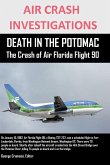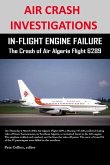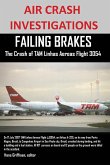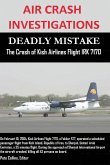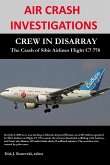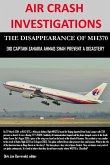On July 17, 1996, about 2031 eastern daylight time, Trans World Airlines, Inc. (TWA) flight 800, a Boeing 747, crashed in the Atlantic Ocean near East Moriches, New York. TWA flight 800 was a scheduled international passenger flight from John F. Kennedy International Airport (JFK), New York, New York, to Charles DeGaulle International Airport, Paris, France. All 230 people on board were killed, and the airplane was destroyed. The weather was good. The National Transportation Safety Board determines that the probable cause of the accident was an explosion of the center wing fuel tank, resulting from ignition of the flammable fuel/air mixture in the tank. Contributing factors to the accident were the design and certification concept that fuel tank explosions could be prevented solely by precluding all ignition sources and the design and certification of the Boeing 747. The safety issues in this report focus on fuel tank flammability.
Hinweis: Dieser Artikel kann nur an eine deutsche Lieferadresse ausgeliefert werden.
Hinweis: Dieser Artikel kann nur an eine deutsche Lieferadresse ausgeliefert werden.


